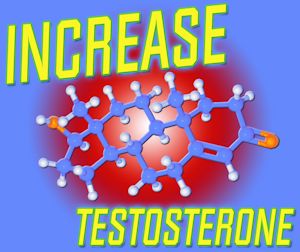The Causes of Aging
Since the beginning of time, humans have sought the magic elixir to ward off the inevitable appearance of “Old Man Aging” and the grim reaper that closely 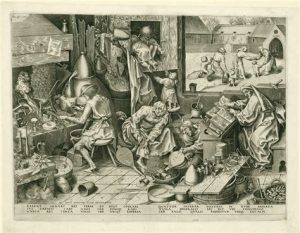 follows. From the formulas and experiments of alchemists of ancient Greece to Ponce de Leon’s quest for the fountain of youth, and the scientific research on longevity in modern times, aging has been a most elusive opponent.
follows. From the formulas and experiments of alchemists of ancient Greece to Ponce de Leon’s quest for the fountain of youth, and the scientific research on longevity in modern times, aging has been a most elusive opponent.
Ideas abound about the causes of aging. Some insist aging is pre-programmed into our cells, while others maintain aging is mainly due to environmental damage to our cells. Although none of the theories can completely explain aging, they do help us comprehend why and how we age. The problem is that, to date, no one cause of aging has been found. This has forced researchers to play “whack-a-mole” to try to piece together the hallmarks of aging and devise a comprehensive approach to longevity that will not guarantee immortality but dramatically increase lifespan.
Let’s take a look at the common causes and hallmarks of aging:
• Stem cell exhaustion. Aging is associated with reduced tissue renewal and impaired tissue repair upon injury, with each organ having its own strategy for renewal and repair. The problem is that as we age, our stem cells become less efficient at performing their duties, resulting in less efficiency through all of the body’s organs.
• Cellular senescence is caused by acute or chronic damage. A cell can replicate approximately 50 times before the genetic material cannot be copied accurately. When this happens, the cells stop dividing, but some of them hang around and emit toxins that accelerate aging. Senescent cells are the hallmark of cellular aging, which becomes biological aging.
• Hormonal Aging. Hormones play a significant role in aging, especially during childhood, when they help build bones and muscles and facilitate the development of secondary male or female characteristics. Testosterone, Growth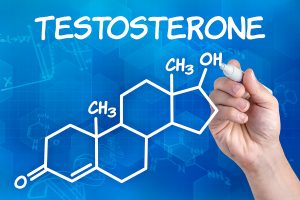 Hormone, Estrogen, Thyroid-Stimulating hormone, insulin, and pregnenolone must all be in a delicate balance. As we age, our hormone levels begin to drop, leading to changes in the skin (such as wrinkles and the loss of elasticity), shrinking muscles, a loss of bone density, and a cratering libido. The result is a body that functions less than optimal.
Hormone, Estrogen, Thyroid-Stimulating hormone, insulin, and pregnenolone must all be in a delicate balance. As we age, our hormone levels begin to drop, leading to changes in the skin (such as wrinkles and the loss of elasticity), shrinking muscles, a loss of bone density, and a cratering libido. The result is a body that functions less than optimal.
• Dysbiosis is defined as a disruption to the microbiome resulting in an imbalance in the microbiota. In other words, bad gut bacteria. The digestive system is often called “the second brain,” and its importance cannot be overstated. The formula is simple: healthy gut bacteria = continued good health. Bad gut bacteria = a broad range of health issues. Gut health becomes an issue for many due to poor nutrition choices and environmental toxins.
• Epigenetic alterations and Altered intercellular communication. Epigenetics studies how cells control gene activity without changing the DNA sequence. This is what differentiates epigenetics from the genetic code we are born with. "Epi-" means on or above in Greek, and "epigenetic" describes factors beyond the genetic code. Epigenetic changes are modifications to DNA that regulate whether genes are turned on or off. Environmental influences, such as a person’s diet and exposure to pollutants, can impact the epigenome. Research has found that epigenetics plays a huge role again due to the miscommunication of the epigenetic instructions that the cells need to function correctly.
• Accumulative Damage. Also called “The Use It and Lose It” theory, the idea here is that the organs give up like a car that is constantly driven fast with little to no maintenance. Continual intake of junk food, smoking, UV radiation, alcohol, drugs, and environmental pollution all combine to speed up the process. The cliché “live fast, die young” is so true since you destroy your energy reserves sooner.
• Inflammation. Acute inflammation is vital for the body’s healing process, but chronic inflammation can trigger a variety of common diseases that appear as we get older, including Alzheimer’s disease, arthritis, cancer, heart disease, and type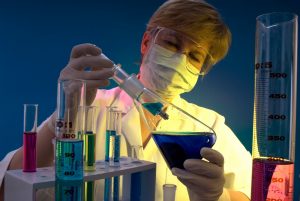 2 diabetes. When inflammation is good, it wards off foreign invaders, speeds up healing, and mops up debris. But when it becomes chronic, inflammation carries a parade of disorders: arthritis, asthma, atherosclerosis, blindness, cancer, diabetes, and mental illness.
2 diabetes. When inflammation is good, it wards off foreign invaders, speeds up healing, and mops up debris. But when it becomes chronic, inflammation carries a parade of disorders: arthritis, asthma, atherosclerosis, blindness, cancer, diabetes, and mental illness.
• Weakened immune system. This is in the “DUH” category. A strong immune system is your fortress against germs and toxins. White cells attack, surround, and destroy enemy troops, such as bacteria and viruses. And they manufacture antibodies, the "infantrymen" that patrol the bloodstream, attacking and rendering harmless any substance they don't recognize as the body's own. It’s obvious that as the immune system weakens as we age, fewer antibodies are produced, thus increasing infection risk. Worse, the body may cannibalize itself by making antibodies that destroy its own tissue. When that happens, the unfortunate result is autoimmune diseases like lupus and rheumatoid arthritis.
• Mitochondrial dysfunction Mitochondria are not only the cell's powerhouses but also constitute latent inflammation triggers. Again, when our mitochondria function less efficiently due to aging, the result is the fatigue that plagues so many older folks.
• Genomic instability Genome integrity and stability are threatened by outside toxic chemical, physical, and biological agents, as well as by internal body issues like DNA replication errors, chromosome segregation defects, oxidative processes, and spontaneous hydrolytic reactions. Aging contributes to genomic instability and leads to a vicious cycle of problems.
• The Telomere Theory of Aging. Telomeres are bits of "junk DNA" located at the ends of chromosomes. Like shoelaces that protect shoestrings, telomeres your DNA each time a cell divides. When a cell divides, the DNA unwraps, and the message within it is copied. Problems eventually arise since the last tip of a chromosome, the telomere, cannot be totally copied; a small amount needs to be snipped. The theory is that when a cell divides, the telomeres shrink each time until they disappear. When this happens, the so-called "real" DNA cannot be copied anymore, and the cell ages and can no longer replicate. Research has discovered that older folks have shorter telomeres, resulting in tissue damage, the dreadful signs of aging, and the afflictions that attack older people.
copied anymore, and the cell ages and can no longer replicate. Research has discovered that older folks have shorter telomeres, resulting in tissue damage, the dreadful signs of aging, and the afflictions that attack older people.
• Metabolic aging and Deregulated nutrient-sensing. Our cells are continually changing food into energy, producing byproducts—some of which can injure the body. The process of metabolization, while essential, can damage cells, a development called metabolic aging.
• Loss of proteostasis. Proteostasis is the regulation of a balanced, functional proteome (the entire set of proteins that is or can be, expressed by a genome, cell, tissue, or organism at a certain time. This process is critical since killer diseases like Alzheimer’s Disease, cancer, cardiovascular disease, and diabetes (“The four horsemen”) and aging are directly linked to impaired protein homeostasis or proteostasis,
• The Free Radical Theory of Aging. Free radicals are a byproduct of standard cell function. When cells produce energy, the result is unstable oxygen molecules called free radicals since they have a free electron, which causes the molecule to become unstable. Free radicals attach to other molecules, which causes dysfunction in proteins and other essential molecules. Free radicals form through this natural process, but smoking, excess alcohol consumption, stress, toxins, and even exercise can also accelerate their development. Damage to DNA, protein cross-linking, and other adverse alterations have been attributed to free radicals.
• Genetics. Are good health, intelligence, and athleticism inherited, like eye and hair color inherited? Or are they produced by the environment, nutrition, whether you have been exposed to harmful chemicals or infectious diseases, and lifestyle choices? Both are factors, but it is uncertain which has the most influence. Research has shown that we are not prisoners of our genes. If your family tree is one of longevity, your odds of living a long, healthy life are improved. But you can erase that genetic advantage with poor lifestyle choices. It works in the opposite direction as well. Bad genetics can be overcome with smart lifestyle choices.
As is apparent, there is no one cause of aging, but these causes are intertwined. And there is no silver bullet available to stop aging. But we do know that smart, healthy lifestyle choices can slow aging.
And research on aging continues.
That’s correct. Scientists and researchers are attacking aging on multiple fronts. Each and every one of these possible causes of aging listed above has been dissected, studied, and examined in minute detail. This research continues for several reasons.
First is altruism. Aging is debilitating, and even if immortality is a pipe dream, an extended healthy life that adds quality and quantity is a worthwhile goal.
Second, researchers, like all of us, have a vested interest in prolonging their own 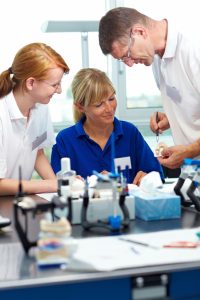 lifespans and health spans, just like the rest of us.
lifespans and health spans, just like the rest of us.
Third, the financial rewards for slowing down, stopping, and even reversing aging are unlimited and unimaginable.
Therefore, it is crucial for everyone to do everything possible to extend their life until aging cures are widely available and affordable to all of us. If aging can be arrested, what good will it do if you drool your Ensure drink into your diapers in a nursing home while unaware of what’s happening?
The time to embrace a healthy lifestyle is now! That means smart nutrition, more attention to getting a good night’s sleep, staying hydrated, exercising, taking the right supplements, addressing your hormone depletion, controlling stress, minimizing toxins in your environment, and many other lifestyle choices.
The age of longevity is rapidly approaching. Make healthy choices now to be here when it becomes a reality!
Contact Us Today For A Free Consultation

- Washington D.C. Testosterone Clinics for Low-T and Hormone Therapy [Last Updated On: October 1st, 2024] [Originally Added On: July 16th, 2018]
- Columbia Testosterone Clinics for Low-T and Comprehensive Hormone Therapy [Last Updated On: November 2nd, 2024] [Originally Added On: November 11th, 2018]
- Charleston Testosterone Clinics for Low-T and Comprehensive Hormone Therapy [Last Updated On: August 14th, 2024] [Originally Added On: November 11th, 2018]
- Providence Testosterone Clinics for Low-T and Comprehensive Hormone Therapy [Last Updated On: November 24th, 2024] [Originally Added On: November 11th, 2018]
- Pittsburgh Testosterone Clinics for Low-T and Comprehensive Hormone Therapy [Last Updated On: August 7th, 2024] [Originally Added On: November 11th, 2018]
- Philadelphia Testosterone Clinics for Low-T and Comprehensive Hormone Therapy [Last Updated On: November 15th, 2024] [Originally Added On: November 11th, 2018]
- Erie Testosterone Clinics for Low-T and Comprehensive Hormone Therapy [Last Updated On: June 22nd, 2024] [Originally Added On: November 11th, 2018]
- Allentown Testosterone Clinics for Low-T and Comprehensive Hormone Therapy [Last Updated On: July 10th, 2024] [Originally Added On: November 11th, 2018]
- Salem Testosterone Clinics for Low-T and Comprehensive Hormone Therapy [Last Updated On: March 6th, 2024] [Originally Added On: November 11th, 2018]
- Portland Testosterone Clinics for Low-T and Comprehensive Hormone Therapy [Last Updated On: January 11th, 2024] [Originally Added On: November 11th, 2018]
- Gresham Testosterone Clinics for Low-T and Comprehensive Hormone Therapy [Last Updated On: November 13th, 2024] [Originally Added On: November 11th, 2018]
- Eugene Testosterone Clinics for Low-T and Comprehensive Hormone Therapy [Last Updated On: June 19th, 2024] [Originally Added On: November 11th, 2018]
- Tulsa Testosterone Clinics for Low-T and Comprehensive Hormone Therapy [Last Updated On: March 13th, 2024] [Originally Added On: November 11th, 2018]
- Oklahoma City Testosterone Clinics for Low-T and Comprehensive Hormone Therapy [Last Updated On: April 18th, 2024] [Originally Added On: November 11th, 2018]
- Norman Testosterone Clinics for Low-T and Comprehensive Hormone Therapy [Last Updated On: November 20th, 2024] [Originally Added On: November 11th, 2018]
- Toledo Testosterone Clinics for Low-T and Comprehensive Hormone Therapy [Last Updated On: August 21st, 2024] [Originally Added On: November 11th, 2018]
- Dayton Testosterone Clinics for Low-T and Comprehensive Hormone Therapy [Last Updated On: April 4th, 2024] [Originally Added On: November 11th, 2018]
- Columbus Testosterone Clinics for Low-T and Comprehensive Hormone Therapy [Last Updated On: July 24th, 2024] [Originally Added On: November 11th, 2018]
- Cleveland Testosterone Clinics for Low-T and Comprehensive Hormone Therapy [Last Updated On: May 12th, 2024] [Originally Added On: November 11th, 2018]
- Cincinnati Testosterone Clinics for Low-T and Comprehensive Hormone Therapy [Last Updated On: February 5th, 2024] [Originally Added On: November 11th, 2018]
- Akron Testosterone Clinics for Low-T and Comprehensive Hormone Therapy [Last Updated On: November 1st, 2024] [Originally Added On: November 11th, 2018]
- Bismarck Testosterone Clinics for Low-T and Comprehensive Hormone Therapy [Last Updated On: June 17th, 2024] [Originally Added On: November 11th, 2018]
- Winston-Salem Testosterone Clinics for Low-T and Comprehensive Hormone Therapy [Last Updated On: February 15th, 2024] [Originally Added On: November 11th, 2018]
- Wilmington Testosterone Clinics for Low-T and Comprehensive Hormone Therapy [Last Updated On: February 29th, 2024] [Originally Added On: November 11th, 2018]
- Raleigh Testosterone Clinics for Low-T and Comprehensive Hormone Therapy [Last Updated On: May 29th, 2024] [Originally Added On: November 11th, 2018]
- High Point Testosterone Clinics for Low-T and Comprehensive Hormone Therapy [Last Updated On: May 10th, 2024] [Originally Added On: November 11th, 2018]
- Greensboro Testosterone Clinics for Low-T and Comprehensive Hormone Therapy [Last Updated On: July 30th, 2024] [Originally Added On: November 11th, 2018]
- Fayetteville Testosterone Clinics for Low-T and Comprehensive Hormone Therapy [Last Updated On: March 19th, 2024] [Originally Added On: November 11th, 2018]
- Durham Testosterone Clinics for Low-T and Comprehensive Hormone Therapy [Last Updated On: October 24th, 2024] [Originally Added On: November 11th, 2018]
- Charlotte Testosterone Clinics for Low-T and Comprehensive Hormone Therapy [Last Updated On: May 7th, 2024] [Originally Added On: November 11th, 2018]
- Cary Testosterone Clinics for Low-T and Comprehensive Hormone Therapy [Last Updated On: April 16th, 2024] [Originally Added On: November 11th, 2018]
- Yonkers Testosterone Clinics for Low-T and Comprehensive Hormone Therapy [Last Updated On: April 7th, 2024] [Originally Added On: November 11th, 2018]
- Syracuse Testosterone Clinics for Low-T and Comprehensive Hormone Therapy [Last Updated On: January 10th, 2024] [Originally Added On: November 11th, 2018]
- Rochester Testosterone Clinics for Low-T and Comprehensive Hormone Therapy [Last Updated On: May 16th, 2024] [Originally Added On: November 11th, 2018]
- Buffalo Testosterone Clinics for Low-T and Comprehensive Hormone Therapy [Last Updated On: March 5th, 2024] [Originally Added On: November 11th, 2018]
- Albuquerque Testosterone Clinics for Low-T and Comprehensive Hormone Therapy [Last Updated On: September 28th, 2024] [Originally Added On: November 11th, 2018]
- Paterson Testosterone Clinics for Low-T and Comprehensive Hormone Therapy [Last Updated On: September 14th, 2024] [Originally Added On: November 11th, 2018]
- Newark Testosterone Clinics for Low-T and Comprehensive Hormone Therapy [Last Updated On: February 9th, 2024] [Originally Added On: November 11th, 2018]
- Jersey City Testosterone Clinics for Low-T and Comprehensive Hormone Therapy [Last Updated On: September 19th, 2024] [Originally Added On: November 11th, 2018]
- Elizabeth Testosterone Clinics for Low-T and Comprehensive Hormone Therapy [Last Updated On: May 15th, 2024] [Originally Added On: November 11th, 2018]
- Manchester Testosterone Clinics for Low-T and Comprehensive Hormone Therapy [Last Updated On: May 27th, 2024] [Originally Added On: November 11th, 2018]
- Reno Testosterone Clinics for Low-T and Comprehensive Hormone Therapy [Last Updated On: April 26th, 2024] [Originally Added On: November 11th, 2018]
- North Las Vegas Testosterone Clinics for Low-T and Comprehensive Hormone Therapy [Last Updated On: May 2nd, 2024] [Originally Added On: November 11th, 2018]
- Las Vegas Testosterone Clinics for Low-T and Comprehensive Hormone Therapy [Last Updated On: February 7th, 2024] [Originally Added On: November 11th, 2018]
- Henderson Testosterone Clinics for Low-T and Comprehensive Hormone Therapy [Last Updated On: August 17th, 2024] [Originally Added On: November 11th, 2018]
- Omaha Testosterone Clinics for Low-T and Comprehensive Hormone Therapy [Last Updated On: November 17th, 2024] [Originally Added On: November 11th, 2018]
- Lincoln Testosterone Clinics for Low-T and Comprehensive Hormone Therapy [Last Updated On: October 30th, 2024] [Originally Added On: November 11th, 2018]
- Billings Testosterone Clinics for Low-T and Comprehensive Hormone Therapy [Last Updated On: June 8th, 2024] [Originally Added On: November 11th, 2018]
- St Louis Testosterone Clinics for Low-T and Comprehensive Hormone Therapy [Last Updated On: July 1st, 2024] [Originally Added On: November 11th, 2018]
- Springfield Testosterone Clinics for Low-T and Comprehensive Hormone Therapy [Last Updated On: May 1st, 2024] [Originally Added On: November 11th, 2018]
- Kansas City Testosterone Clinics for Low-T and Comprehensive Hormone Therapy [Last Updated On: February 4th, 2024] [Originally Added On: November 11th, 2018]
- Independence Testosterone Clinics for Low-T and Comprehensive Hormone Therapy [Last Updated On: November 12th, 2024] [Originally Added On: November 11th, 2018]
- Columbia Testosterone Clinics for Low-T and Comprehensive Hormone Therapy [Last Updated On: November 14th, 2024] [Originally Added On: November 11th, 2018]
- Jackson Testosterone Clinics for Low-T and Comprehensive Hormone Therapy [Last Updated On: September 20th, 2024] [Originally Added On: November 11th, 2018]
- St Paul Testosterone Clinics for Low-T and Comprehensive Hormone Therapy [Last Updated On: October 12th, 2024] [Originally Added On: November 11th, 2018]
- Rochester Testosterone Clinics for Low-T and Comprehensive Hormone Therapy [Last Updated On: September 3rd, 2024] [Originally Added On: November 11th, 2018]
- Minneapolis Testosterone Clinics for Low-T and Comprehensive Hormone Therapy [Last Updated On: November 6th, 2024] [Originally Added On: November 11th, 2018]
- Warren Testosterone Clinics for Low-T and Comprehensive Hormone Therapy [Last Updated On: August 10th, 2024] [Originally Added On: November 11th, 2018]
- Sterling Heights Testosterone Clinics for Low-T and Comprehensive Hormone Therapy [Last Updated On: October 13th, 2024] [Originally Added On: November 11th, 2018]
- Lansing Testosterone Clinics for Low-T and Comprehensive Hormone Therapy [Last Updated On: April 25th, 2024] [Originally Added On: November 11th, 2018]
- Grand Rapids Testosterone Clinics for Low-T and Comprehensive Hormone Therapy [Last Updated On: April 19th, 2024] [Originally Added On: November 11th, 2018]
- Flint Testosterone Clinics for Low-T and Comprehensive Hormone Therapy [Last Updated On: May 20th, 2024] [Originally Added On: November 11th, 2018]
- Detroit Testosterone Clinics for Low-T and Comprehensive Hormone Therapy [Last Updated On: March 23rd, 2024] [Originally Added On: November 11th, 2018]
- Ann Arbor Testosterone Clinics for Low-T and Comprehensive Hormone Therapy [Last Updated On: October 3rd, 2024] [Originally Added On: November 11th, 2018]
- Worcester Testosterone Clinics for Low-T and Comprehensive Hormone Therapy [Last Updated On: October 28th, 2024] [Originally Added On: November 11th, 2018]
- Springfield Testosterone Clinics for Low-T and Comprehensive Hormone Therapy [Last Updated On: October 15th, 2024] [Originally Added On: November 11th, 2018]
- Lowell Testosterone Clinics for Low-T and Comprehensive Hormone Therapy [Last Updated On: January 25th, 2024] [Originally Added On: November 11th, 2018]
- Cambridge Testosterone Clinics for Low-T and Comprehensive Hormone Therapy [Last Updated On: February 6th, 2024] [Originally Added On: November 11th, 2018]
- Boston Testosterone Clinics for Low-T and Comprehensive Hormone Therapy [Last Updated On: August 16th, 2024] [Originally Added On: November 11th, 2018]
- Baltimore Testosterone Clinics for Low-T and Comprehensive Hormone Therapy [Last Updated On: March 7th, 2024] [Originally Added On: November 11th, 2018]
- Augusta Testosterone Clinics for Low-T and Comprehensive Hormone Therapy [Last Updated On: May 21st, 2024] [Originally Added On: November 11th, 2018]
- Shreveport Testosterone Clinics for Low-T and Comprehensive Hormone Therapy [Last Updated On: February 2nd, 2024] [Originally Added On: November 11th, 2018]
- New Orleans Testosterone Clinics for Low-T and Comprehensive Hormone Therapy [Last Updated On: March 16th, 2024] [Originally Added On: November 11th, 2018]
- Lafayette Testosterone Clinics for Low-T and Comprehensive Hormone Therapy [Last Updated On: September 24th, 2024] [Originally Added On: November 11th, 2018]
- Baton Rouge Testosterone Clinics for Low-T and Comprehensive Hormone Therapy [Last Updated On: October 2nd, 2024] [Originally Added On: November 11th, 2018]
- Louisville Testosterone Clinics for Low-T and Comprehensive Hormone Therapy [Last Updated On: February 23rd, 2024] [Originally Added On: November 11th, 2018]
- Lexington Testosterone Clinics for Low-T and Comprehensive Hormone Therapy [Last Updated On: October 11th, 2024] [Originally Added On: November 11th, 2018]
- Wichita Testosterone Clinics for Low-T and Comprehensive Hormone Therapy [Last Updated On: March 26th, 2024] [Originally Added On: November 11th, 2018]
- Topeka Testosterone Clinics for Low-T and Comprehensive Hormone Therapy [Last Updated On: February 28th, 2024] [Originally Added On: November 11th, 2018]
- Overland Park Testosterone Clinics for Low-T and Comprehensive Hormone Therapy [Last Updated On: February 20th, 2024] [Originally Added On: November 11th, 2018]
Word Count: 1575










